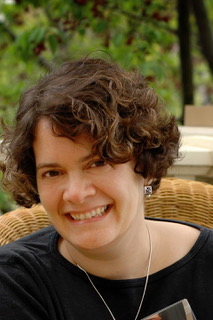
Lilly J. Goren is professor of political science and global studies at Carroll University in Waukesha, Wisconsin, where she received the 2011 Benjamin F. Richason, Jr. Faculty Award in teaching, research and educational innovation. She holds an M.A. and PhD from Boston College.
Her areas of expertise include American politics, popular culture and politics, women’s and gender studies, and politics and literature. She is co-author, with Linda Beail, of Mad Men and Politics: Nostalgia and the Remaking of Modern America (Bloomsbury Publishers, 2015). She is co-author, with Justin Vaughn, of Women and the White House: Gender, Popular Culture, and Presidential Politics (University Press of Kentucky, 2012), winner of both the Popular Culture Association/American Culture Association’s 2014 Susan Koppelman Book Award, and the Southwest Popular Culture Association’s 2014 Peter C. Rollins Book Award. Goren edited You’ve Come a Long Way, Baby: Women, Politics, and Popular Culture (University Press of Kentucky, 2009). She is author of Not in My District: The Politics of Military Base Closures (Peter Lang, 2003), and co-author of The Comparative Politics of Military Base Closures (University of Maine Press, 2002). Goren has published articles in a variety of journals.
Goren has twice served as chair of the Politics, Literature, & Film section, where she is currently a member at large, and she is also serving a second term on the Executive Board of the Presidents and Executive Politics (PEP) Section. Service to the APSA also includes membership on the Okin-Young Award committee, and on a variety of awards committees for the PEP and Politics, Literature & Film sections. Goren was elected to a three-year term on the Governing Committee of the Association for Political Theory (APT), where she served as Conference Committee Co-Chair for the annual meeting in 2015. She will be a Fulbright Fellow at the University of Bonn in the spring of 2018.
Statement of Views:
I have long advocated for APSA’s attention to faculty (and thus students) at all kinds of colleges and universities. The role of APSA should be to engage and support scholars and teachers, including supporting public scholarship, civic engagement, collaborative, interdisciplinary and multidisciplinary approaches to teaching, publishing, and work in political science.
The APSA needs to continue to integrate and reflect a diversity of views and experiences from the membership, which means paying particular attention to under-represented groups within the organization, especially individuals of color, women, religious and ethnic minorities, and LGBTQ members.